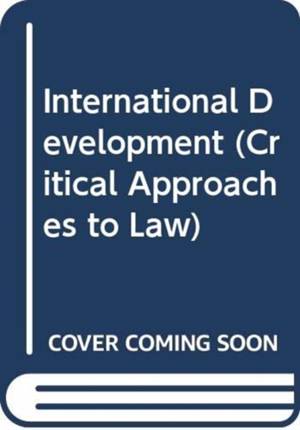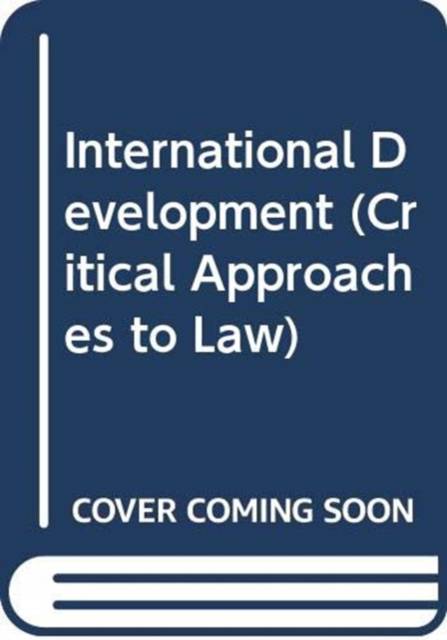
- Retrait gratuit dans votre magasin Club
- 7.000.000 titres dans notre catalogue
- Payer en toute sécurité
- Toujours un magasin près de chez vous
- Retrait gratuit dans votre magasin Club
- 7.000.0000 titres dans notre catalogue
- Payer en toute sécurité
- Toujours un magasin près de chez vous
Description
This book contests current approaches to law and development insofar as these depend upon two premises: first, that development is the means by which global human well-being is to be achieved; and, second that law - both domestic and international - may be used to affect that development.
Asking not how law may effect development but rather how development discourse sustains (international) law itself, this book argues that what is at stake in the idea of 'development' is the legitimization of an increasingly forceful homogenization of the political, economic and social spheres. Developmentalism, it is further argued, provides normative 'objectivity' to the foundational assumptions of international law (including human rights, trade and international financial law). And, as law thus becomes both a normative and an instrumental discourse, what it overlooks is the violence of developmentalism's transformational project.
Spécifications
Parties prenantes
- Auteur(s) :
- Editeur:
Contenu
- Nombre de pages :
- 144
- Langue:
- Anglais
- Collection :
Caractéristiques
- EAN:
- 9780415432900
- Date de parution :
- 01-10-22
- Format:
- Livre relié
- Format numérique:
- Genaaid
- Dimensions :
- 138 mm x 216 mm







